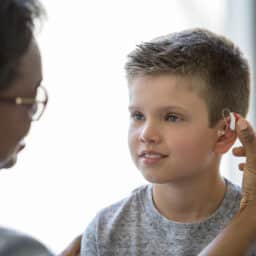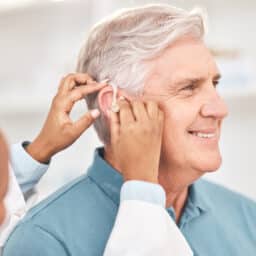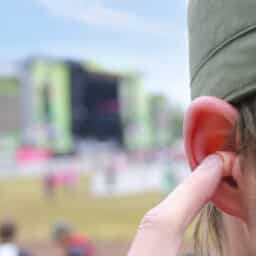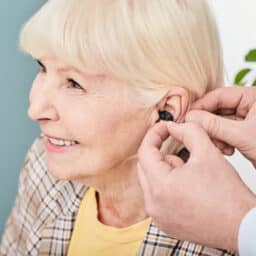Pediatric Hearing Aids and Loss: What Parents Should Know

Pediatric hearing loss is a prevalent condition affecting many families worldwide. According to the CDC, about 1 to 3 out of every 1,000 children in the United States are born with detectable hearing loss in one or both ears. Understanding the nuances of pediatric hearing aids and loss is crucial for parents navigating this challenging…
The Importance of Selective Hearing in Communication

You might have heard the term “selective hearing” in the past, often with a negative connotation, suggesting that someone only hears what they choose to hear. For example, someone might say that a person listening to a speech and only hearing the compliments but never the criticisms has selective hearing. However, selective hearing in a…
Preparing for the Emotional Introduction To Hearing Aids

Nearly 20% of the global population lives with hearing loss. If you have been living with hearing loss for weeks or even years, seeking treatment can be an emotional experience. Navigating the Emotional Journey With Hearing Aids Following a hearing test, your provider may recommend hearing aids, a common treatment form used to mitigate the…
How To Know if It’s Time To Address Your Tinnitus

Tinnitus, identified as a persistent ringing or buzzing sensation in the ear, can be perplexing. The internal nature of the sound makes it difficult for others to perceive, leaving patients unsure about when they should seek assistance from an audiologist. To help prevent tinnitus from causing you unnecessary stress, pay attention to a few signs…
A Guide To Improving Your Life With Tinnitus

Living with tinnitus is a challenging experience affecting more than 50 million people in the United States. The constant ringing or buzzing in your ears can affect your quality of life, making it difficult to concentrate, sleep or even enjoy the things you love to do. However, there are tools and strategies available to help…
Omega-3 Fatty Acids and Hearing: What Is the Connection?

There are many factors that can contribute to the development of hearing loss, including ototoxic medications, loud noise exposure, physical trauma and gradual changes (as a result of aging) to the inner or middle ear and the nerve pathways leading to the brain. Age-related hearing loss is the most common sensory deficit in older adults….
How To Make Hearing Protection a Priority in 2024

Approximately 12.5% of children aged six to 19 and 17% of adults aged 20 to 69 have suffered permanent hearing damage from excessive noise exposure. Those with hearing loss often suffer negative ramifications in their work, school, personal relationships and mental health. While hearing aids are an effective treatment option that can help mitigate the…
How Hearing Aids Can Strengthen Your Friendships

Presbycusis, or age-related hearing loss, is common among older adults. Nearly 25% of people aged 65-74 have disabling hearing loss. If you have age-related hearing loss, you may struggle to converse with friends and family. When you can’t regularly hear conversations, it makes it harder to connect with those around you. Hearing aids have technologies…
How Does Hypertension Affect Hearing Loss?

Comorbidity is the simultaneous presence of two or more diseases or illnesses in one person. Comorbidity does not always equal causation but may help to explain why two conditions often present together. Hearing loss has many comorbidities, but one common example is hypertension or high blood pressure. What Is Hypertension? A patient is considered hypertensive…
Daily Tips to Get the Most from Your Hearing Aids

Hearing loss is a common chronic condition affecting millions of Americans. According to research, one in eight people aged 12 or older has hearing loss in both ears. This tells us that numerous people would benefit from hearing aids. Getting the Most Out of Your Hearing Aids To get the most out of your hearing…